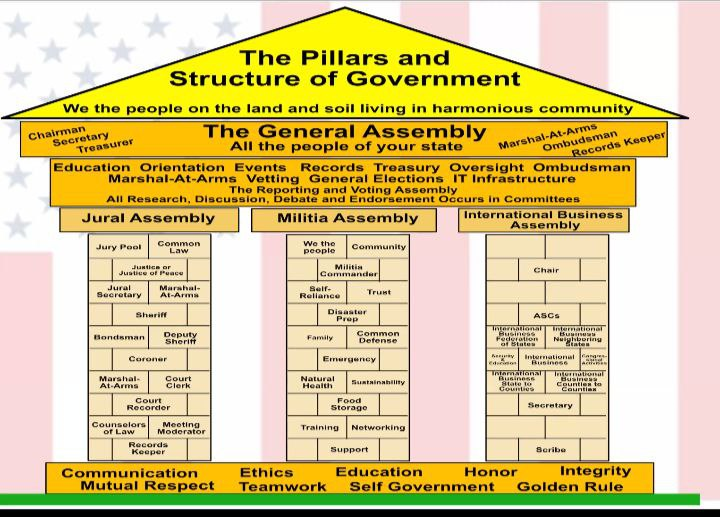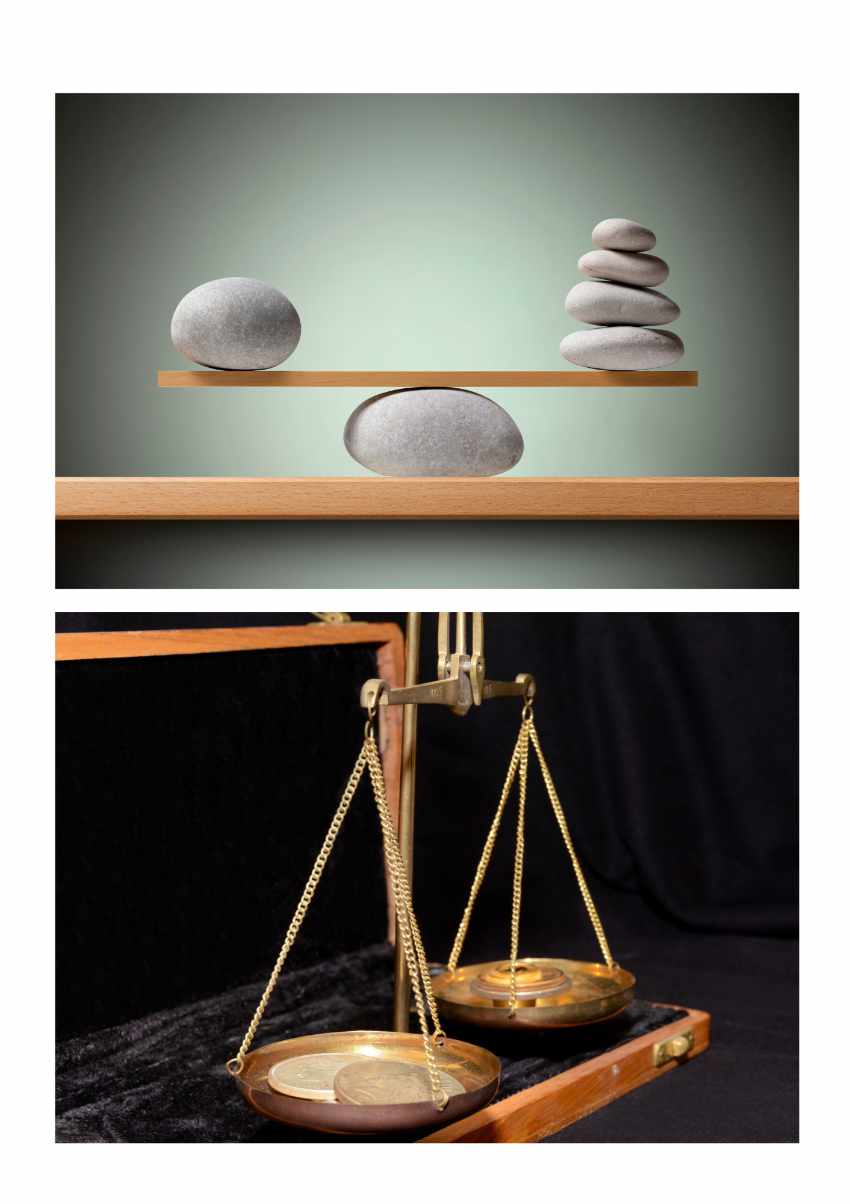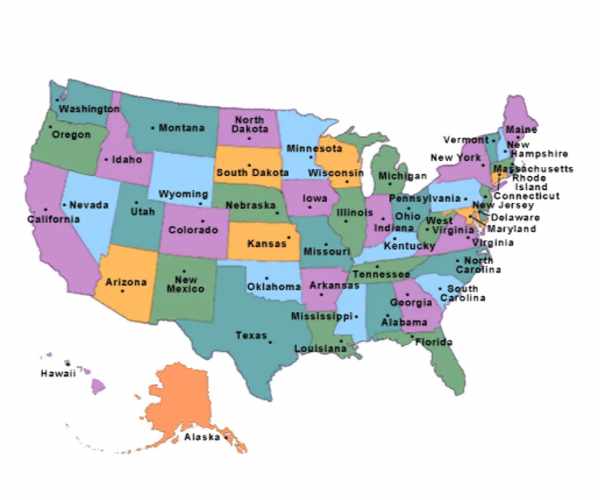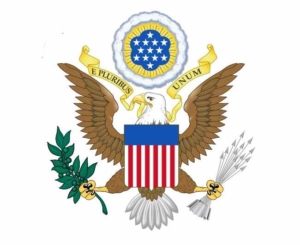In this section, The Illinois Assembly would like to introduce the Lawful Governance structure instituted and intended for our counties and nation-state by our Founding Documents. We leave behind the hierarchy and self-interest that we have grown accustomed to and we forge ahead with a new system here on Illinois, that is founded on collaborative Self-Governance and Honor.
The Four Pillars of Illinois Governance
The Illinois Assembly is dedicated to the restoration of a complete and fully operational land and soil jurisdiction State and County court system serving the people of Illinois, the preservation of the National Trust, the enforcement of the Public Law, the upholding of the Federal Constitutions owed to our State and People, the population of our land and soil jurisdiction, the filling of vacated Public Offices, and the reclamation of our material and intellectual public and private assets. To these ends we, the living people of Illinois, have called the eligible Illinoisan nationals and electors to assemble and to serve as Jurors and Officers. We have established the processes and procedures to qualify Jurors and others competent to hold State Citizenship and Public Office. We do this peacefully and without rancor in the exercise of our unincorporated powers and sovereign capacities.
The Illinois Assembly – Importance of Setting up the Four Pillars
Expanding upon The Illinois Assembly’s mission is to get our Lawful State Government running and restored. It’s about enforcing the Law of the Land and upholding American State National/Citizen unalienable rights and interests. To fulfill this mission the members of The Illinois Assembly must set up the “Four Pillars”. The Four Pillars are: (1) the General Assembly which is responsible for addressing questions that arise within the borders of the State; (2) the International Business Assembly which is responsible for questions involving interstate business and diplomacy. State Citizens serve on the International Business Assembly to decide international issues; (3) the Jural Assembly which addresses issues related to the Public Courts. Everyone serves as a Juror and is a member of the Jury Pool as part of the Jural Assembly. State Nationals and State Citizens are both eligible to decide cases involving in-State issues, while State Citizens alone hear cases involving international subject matter; (4) the State Assembly Militia which deals with issues of defense and to an extent, apprehension of criminals, and natural disaster response within the borders of the State. If you are between the ages of 21 and 45, accept your obligation to serve in the local militia. If you are younger or older or physically unable to serve as a militia member, serve as a Supporting Member in supply, communications, and administrative positions.
General Assembly Structure
Assembly Body – Administrative and Operational functions
The General Assembly is where the people on the land and soil gather to address state (or county) level issues. During the assembling process, the main focus of the General Assembly is to educate and inform the people so they have the proper tools to become fully standing, self-governing communities.
The General Assembly has two foundational and essential areas of function; Administrative (the Body) and Operational. The Body is the people who elect Public Officials, approve Notices, and oversee other functions within the Assembly. It is the Governance structure from which everything that Illinois brings forward arises. For example, it provides oversight in the form of an Oversight Committee, manages vetting for public offices, organizes public elections, and more.
Whereas the Administrative aspect is comprised of the Living people, the Operational aspect is comprised of the “things” and structures that allow the systems and infrastructure of our nation-state to function and run smoothly. The Operational functions are mostly under the auspices of the Treasury, which oversees our Prosperity banking system. It provides the necessary support, both financially, and otherwise, that facilitates implementation of decisions made by the people/People of The General Assembly.
Coordinator
Bridges the reconstruction phase between Illinois and The Federation of States
Speaker/Chair
Moderates’ meetings and ensures that The Illinois Assembly mission, decorum and guidelines of The Assembly are implemented with integrity. Stands as the voice of all Illinoisans directed by the people. Serves as the voice for the people in all jurisdictions and situations. Autographs all notices and communication outgoing from the Assembly.
Secretary
Supports the Speaker/Chair providing administrative assistance by keeping minutes, roll call at meetings, disseminating the agenda, and performing other actions as needed for the smooth functioning of Illinois governance.
Marshal-at-Arms
Responsibilities include ensuring the safety and security of the people and facilities at all meetings and Assembly functions on Illinois. This may include transporting visiting Officials and guests from other nations, or within the borders of Illinois, to and from meetings and events. Whether it be in the court room or at an In Esse meeting, he/she upholds the Public Law and keeps the Peace. Assists to ensure that The Illinois Assembly mission, decorum and guidelines in the Assembly are implemented with integrity.
At the state level, the Marshal at Arms is the highest-ranking Peacekeeping Officer on Illinois, and he/she serves The Four Pillars of the Assembly, all meetings, and all people. He or she may appoint and train others to assist with various duties, but the responsibility for security of the Assembly remains with the Marshal at Arms.
Treasurer
The Treasurer handles the financial needs of the Assembly, collecting and depositing any funds received, distributing outgoing payments and maintaining an accurate and up-to-date ledger. He/she works with the Banking Committee for the benefit of all people on Illinois. The Treasurer’s Office also employs a deputy treasurer, signatories and other support staff to assist in the Treasury functions.
Records Keeper
Responsible for maintaining and housing all Assembly records at both the state and county level. They hold a very important position in the Assembly by safeguarding our records for not only our own use, but for the benefit of all historians of the future.
Recording Secretaries
The Recording Secretaries record status correction documents, baby deeds, land patents and other important declarations and notices on the Land and Soil Jurisdiction. They serve a vital function as they publish and record all documents of importance for the Assembly and the people.
Ombudsman
Assists the Assembly by mediating disputes and disagreements between the people.
Public Health – Coroner
The main responsibility of the coroner is to provide a reasonable explanation of why someone has died. He (or she) will also certify all births and deaths of Illinoisians and have them recorded by the State Jural Assembly Recorder. Once this has been recorded, the coroner will send a copy to the Territorial government.
General Assembly Committees
General Education Committee
Produces educational materials and programs for the General Membership and Public.
New Member Orientation Committee
Provides support and educational guidance for new members to overcome prior indoctrination and fear and dependency issues.
Events Committee
Plans and executes events, meetings and helps support elections set up.
Banking Committee
Assists and oversees banking functions for the state or county. Includes the Treasurer and the multiple signatories that are on the state or county bank account. Reviews, assesses, monitors all areas of Banking on the Assembly.
Treasury Committee
Assists and oversees Treasury functions.
Oversight Committee
Serves several functions within the General Assembly. They work with individuals and committees to ensure that the People are upholding their Fiduciary Duty to the people and that all aspects of The Assembly are operating with integrity and honor.
Ombudsman Committee
Provides general oversight and a forum for complaints. Works with each of the other committees to ensure that they are operating with integrity and honor. Reviews complaints pertaining to the operation of a committee and presents to the General Assembly.
General Elections and Quorum Committee
Serves the General Assembly by managing the election functions, nominations, public announcements, promotes participation in elections, provides ballots, poll watchers and ballot security in addition to platforms for online voting, and coordinates with the Vetting Committee. They are responsible for informing the people of the nominees for election and they work with the Website Committee to accomplish this.
Vetting Committee
Coordinates with other pillars supporting the vetting of both publicly elected men and women which may include background checks and “interviews” applicable to the position being applied for. This committee assists and supports the vetting for all pillars of the Assembly.
Public Health Committee
In addition to keeping natal and death records, the primary function of the Public Health Committee is to provide education in all areas of natural health and wellness for the people, and to bring forward factual information when Public Health issues arise. This committee will also compile a database for non-licensed, but qualified health practitioners who want to offer service to Americans.
I.T. Infrastructure Committee
Provides guidance and direction on any new technology which might include, artificial intelligence, databases, server implementation, and records storage along with website layout and social media strategies and how to ensure all of their safe and efficient use for the men and women on Illinois.
Recording Secretary Committee
Provides education and support to all Recording Secretaries
Special Purpose Committees
The body of the Assembly can call for Committees to research, investigate and/or review any topic that the Assembly body deems necessary.
Jural Assembly Living Court
Court Clerk
Manages and maintains the day-to-day documentation functions of the Courts and keeps the Courts moving. Assigns case numbers, collects all of the documented evidence. Interfaces with the people and assists the flow of the “Court Process” as follows: Self Governance, Mediation (if needed), Living Court, Living Jury, Grand Jury, Coroner’s Inquest. Presents all Evidence, facts, testimony of the case to the court.
Court Notary
Public Notaries process, witness and transfer the Public Records for Illinois. They keep records for County, State, and the people. They may serve as a reliable and official Witness to all business transactions, Notices and other Assembly matters that will secure our identities, control of our assets, and invoke the Public and Organic Law.
Court Recorder
Records and maintains all records of The Court. Ensures the safe storage of Transcripts, Files, Recordings and other documentation pertaining to the Living Court Processes. Records the dates and details of Natal Events and Deaths as needed.
Juror
Being a part of the Jury Pool is our Public Duty. A jury decides the Law based on facts, enforces Organic and Public Law by their decisions, and wields Jury Nullification when presented with repugnant laws. They determine judgment on all acts of Federal, Territorial or Municipal congress and are empowered to hear cross-jurisdictional cases.
Court Justice
Our Land jurisdiction State Justices oversee the Lawful conduct and proceedings within the Courtroom and instruct, inform, and guide the Jury. They moderate cases and issues enforcing the Public and Organic Laws of Illinois including the provisions of “The Constitution for the united States of America”. The Justices preside over court cases, ask questions and generally keep Court cases moving toward expedient and proper resolution.
Bondsman
Bondsman maintain the security of the actual courtroom and direct traffic within it. They may also seat people in the court gallery, help those who are physically injured or disabled, distribute educational information to members of the Jural Assembly, instruct people on how to post bonds that are retained and accounted for by the Court Clerk’s Office and act in similar capacities. Instructs people on how to post bonds.
Coroner
The Coroner determines, documents and investigates the end of life of the people on Illinois. He/she is responsible for the secure and respectful transport and keeping of the remains. The Coroner may call a Coroner’s Inquest in cases that need further investigation to determine cause of death.
Sheriff (at county level)
The Sheriff is the highest-ranking Lawful Peace Officer at the county Level. Each county will elect a Sheriff who will Keep the Peace and Uphold the Public Law for the people.
Jural Assembly Structure & Committees
ASSEMBLY BODY
The Jural Assembly has two foundational and essential areas of function. The Administrative function (the Body) and the Living Court.
The Body is the people who volunteer to participate and vote for Court positions, perform administrative functions within the Jural Assembly, and provide oversight in the form of the Oversight Committee.
The Living Court is the actual Lawful, American Common Law Court functioning of, for, and by the people, upholding our Inherent Rights and the Public Law.
ADMINISTRATIVE FUNCTIONS
Chair/Moderator
Moderates Administrative meetings and ensures that The Illinois Jural Assembly mission, decorum and guidelines of The Assembly are implemented with integrity.
Secretary
Takes the minutes of the Assembly meetings. Disseminates information as needed.
Documents Committee
This Committee is creating the actual structure of the courts through documentation and the forms that are needed and used throughout all Court processes.
Court Oversight Committee
Stands as the Committee that provides balance and fairness within the Jural Structure.
Court Venue Committee
Seeks accommodations for the Courts to hold Session, negotiates use of our public buildings for this purpose, serves Notice that our Public Courts are restored, invokes Ex Parte Milligan 2 US 71.
Law Education Committee
Evaluates educational opportunities to familiarize members of the Assembly about our Public Law and its administration past and present.
Jury Pool Committee
Develops pools of competent and eligible Jurors to service on both Trial Juries and Grand Juries, administers selection of Jurors, reimbursement of expenses, and other issues related to maintaining and caring for Jurors.
Litigation Committee
Works with Assembly Members who have active litigation concerns to assist them with asserting their position with respect to the foreign courts and educating them to avoid entrapment.
Coroner’s Office Committee
Takes on the oversight functions for the Coroner’s Office, investigate complaints and works with the Coroner and his (or her) staff to improve their service and capabilities, record keeping, and end of life services.
Other Committees as needed
Committees can be created at any time to address the needs of the people.
Militia Assembly
ASSEMBLY BODY
The Militia Assembly has two foundational and essential areas of function, the Administrative (the Body) and the Operational. This Assembly focuses on promoting public safety within the boundaries of our State and is the “well-regulated” militia guaranteed to each State for its internal security. The Militia is equivalent to a Community National Guard, always prepared and ready for service.
The Body (the people) gathering for this Assembly are responsible for electing Officers, assisting with organizational documentation and function, and developing short- and long-term plans for state emergency preparedness and militia readiness. The Body also provides oversight in the form of the Militia Oversight Committee.
The Operational functions consist of multiple coordinators that focus on Intelligence Distribution, Supply, Training and Logistical needs, various Communication Plans during deployments, and natural and other emergencies throughout the State. Other activities that service the community might include community gardening, forming a seed bank or community food storage, establishing natural healing centers, and providing education in all things community, survival, and health could be included.
Militia Commander
Moderates Administrative meetings, oversees all aspects of the Militia Assembly. Advises the Speaker related to the readiness, needs, ongoing operations, reports from Regions, Clusters and Counties and any ongoing litigation’s. Support the needs of regional and cluster coordinators, and county commanders as necessary. I.e. training standards, equipment needs, operational support, start up.
Secretary
Takes the minutes of The Assembly meetings. Disseminates information as needed.
Record Keeper
Stores and maintains all records from the meetings.
Defense and Communications Committee
Provides defense, communication, intelligence, planning and training support services to Cluster Militias within designated Regions, Clusters and Counties. Serves to protect the rights of the people and their property at the county level.
Education/Training Committee
Identifies and assesses needed education and training in all areas.
Provisions/Supply Committee
Locates, acquires, and disperses provisions and supplies to the regions, clusters and counties as needed.
Vetting and Enrolling Committee
Identifies individuals who hold skill sets that may fulfill the various roles and responsibilities required to support the smooth functioning of our Militias and Peace Keeping capacities on our counties, Clusters and Regions within state borders. Runs background checks as needed.
Operations and Oversight Committee
Develops short and long-term operational goals for the State Assembly Militia, creates plans to implement projects and goals, evaluates Militia readiness, performs oversight and vetting functions for the Militia, works with the Ombudsman’s Office to resolve complaints related to the Militia and Militia Service, works with the Peacekeeping Task Force to coordinate joint operations, when appropriate, with Constitutional Sheriffs and with Continental Marshal Service Personnel.
International Business Assembly Structure & Committees
The International Business Assembly is an administrative body that operates within the international Jurisdictions of Land, Air and Water.
Governing Body
Consists of seven (7) Illinois State Citizens who act in collaboration in international affairs on behalf of the people on Illinois. They discuss and debate the issues most concerning the people of Illinois, interface with all Service Providers to ensure proper implementation of contracts, and establish trade negotiations, treaties and agreements between other Sovereign nations.
Meeting Moderator
The meeting moderator’s job is to open and close the meeting and ensure that the agenda is followed.
Secretary
Takes the minutes of the Assembly meetings. Disseminates information as needed.
Record Keeper
Stores and maintains all records from the meetings.
Business Committee
Conducts daily business operations and functions on Illinois. Works with Service Providers to plan infrastructure projects and enact services.
Congressional Committee
Performs vetting on candidates for the Congressional Congress once Reconstruction is complete.
International Education and Security Committee
Reads and assesses International and Global trends, keeps up with security issues and concerns, is briefed on international issues impacting the States of the Union and may make presentations to the General Assembly. Monitors all International issues concerning Illinois and her people.











